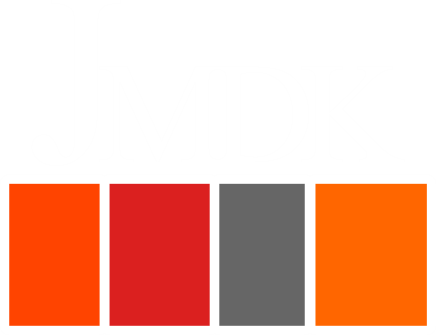Hybrid Strategy Study: The Role of Entrepreneurial Orientation and Total Quality Management in MSMEs
DOI:
https://doi.org/10.26905/jmdk.v7i2.3057Keywords:
Entrepreneurial Orientation, MSMEs, Total Quality ManagementAbstract
Entrepreneurial Orientation (EO) and Total Quality Management (TQM) are often referred to as antecedents of growth, competitive advantage and business performance by previous research. This research is the first investigation in a literature study that attempts to show the relationship between EO and TQM concepts on business performance. In this study, we use a multidimensional model on EO and TQM concepts and test a series of hypotheses related to business performance using student business data surveys in the MSMEs scale of Surabaya, East Java. It is expected that the results of this study can answer prepositional questions, whether the two strategies can help improve the performance of MSME-scale businesses in developing countries.
https://doi.org/10.26905/jmdk.v7i2.3057
Downloads
References
Abdullah Kaid Al-Swidi. (2012). Total Quality Management, Entrepreneurial Orientation And Organizational Performance: The Role of Organizational Culture. African Journal of Business Management, 6(13), 4717–4727. https://doi.org/10.5897/AJBM11.2016
Al-Swidi, A. K., & Mahmood, R. (2013). Total Quality Management, Entrepreneurial Orientation and Organizational Performance: The Role of Organizational Culture. African Journal of Business Management, 6(13), 4717-4727.
Al-Dhaafri, H. S., Al-Swidi, A. K., & Yusoff, R. Z. B. (2016). The Mediating Role of Total Quality Management Between The Entrepreneurial Orientation and The Organizational Performance. The TQM Journal, 28(1), 89-111.
Al-Dhaafri, H. S., Yusoff, R. Z. B., & Al-Swidi, A. K. (2013). The Effect of Total Quality Management, Enterprise Resource Planning And The Entrepreneurial Orientation on The Organizational Performance: The Mediating Role of The Organizational Excellence---A Proposed Research Framework. International Journal of Business Administration, 4(1), 66.
Barney, J.B. (1991). Firm Resources And ® Rm Competitive Advantage. Journal of Management, 17, 99-120.
Barney, J. B. (2002). Gaining and Sustaining Competitive Advantage (2nd ed.). Upper Saddle River, NJ: (Prentice Hall).
Caruana, A., Ewing, M.T., & Ramaseshan, B. (2002). o. The Service Industries Journal, 22(2), 43–58.
Christian F.T., Koesmono Teman., Christiananta Budiman (2018). The Effect of Strategic Leadership and Organizational Culture on The Implementation of TQM and Performance food and beverage company in Indonesia. IJAR. Res. 6(10), 922-929.
Covin, J. G., & Slevin, D. P. (Eds.). (1986). The Development and Testing of an organizational level Entrepreneurship Scale. Wellesley, MA: Babson College.
Covin, J. G., & Slevin, D. P. (1991). A Conceptual Mode of Entrepreneurship As Firm Behavior. Entrepreneurship Theory and Practice, (Fall), 7-25.
Collis, D. J. (1994). Research Note: How Valuable are Organizational Competence. Strategic Management Journal, 15,143–152.
Covin, J., & Miles, M. (1999). Corporate Entrepreneurship and The Pursuit of Competitive Advantage. Baylor University. USA
Covin, J. G., & Wales, W. J. (2010). The Measurement of Entrepreneurial Orientation. Paper Presented at The Annual Meeting of the Academy of Management (AoM), Montreal, QC.
Cummings, T. G., & Worley C. G. (1997). Organizational Development and Change. South- Western College Publishing, Ohio. Entrepreneurship: Theory & Practice, 23(3), 47-63.
Davis, J. L., Bell, R. G., Payne, G. T., & Kreiser, P. M. (2010). Entrepreneurial Orientation and Firm Performance: The Moderating Role of Managerial Power. American Journal of Business, 25(2), 41-53.
Deming, W. E. (1986). Out of Crisis. Cambridge, MA: Massachusetts Institute of Technology Press.
Demirbag, M., Koh, S. C. L., Tatoglu, E., & Zaim, S. (2006). TQM and Market Orientation’s Impact on SMEs’ Performance. Industrial Management & Data System, 106(8), 1206-1228.
Feigenbaum, A. V. (1983). Total Quality Control. New York: McGraw-Hill.
Feigenbaum, A.V. (1986). Total Quality Control (3rd ed.). New York: McGraw-Hill
Feng, J., Prajogo, D. I., Tan, K. C., & Sohal, A. S. (2006). The Impact of TQM Practices on Performance: A Comparative Study Between Australian and Singaporean Organizations. European Journal of Innovation Management, 9(3), 269-278.
Ferdinand, Agusty. 2002. Structural Equation Modelling Dalam Penelitian Manajemen. Semarang: FE UNDIP.
Frank, H., Kessler, A., & Fink, M. (2010). Entrepreneurial Orientation and Business performance. Schmalenbach Business Review, 62(2), 175-198.
Flynn, B. B., Schroeder, R. G., & Sakakibara, S. (1995). The Impact of Quality Management Practices on Performance and Competitive advantage. Decision sciences, 26(5), 659-691.
GAO. (1991). Report to the House of Representatives on Management Practices: US Companies Improve Performance Through Quality Efforts. United States General Accounting Office, National Security and International Affairs Division, Washington, DC.
Hudson, M., Smart, A., & Bourne, M. (2001). Theory and Practice in SME pPerformance measurement systems. International journal of operations & production management, 21(8), 1096-1115.
Imran, M., binti Aziz, A., Binti Abdul Hamid, S. N., Shabbir, M. S., Salman, R., & Jian, Z. (2018). The Mediating Role of Total Quality Management Between Entrepreneurial Orientation and SMEs Export Performance. Management Science Letters, 519–532. https://doi.org/10.5267/j.msl.2018.5.003
Jogaratnam, G., & Tse, E.C. (2006). Entrepreneurial Orientation and The structuring of organizations – Performance Evidence from the Asian Hotel Industry. International Journal of Contemporary Hospitality Management, 18(6),454-68.
Juran, J. M. (1988). Juran on Planning on Quality. New York: Free Press.
Juran, J.M., & Gryna, F.M. (1988). Juran's Quality Control Handbook (4th ed.). McGraw-Hill, New York, NY.
Kraus, S., Rigtering, J. C., Hughes, M., & Hosman, V. (2012). Entrepreneurial Orientation and The Business Performance of SMEs: a Quantitative Study from the Netherlands. Review of Managerial Science, 6(2), 161-182.
Kannan, V. R., & Tan, K. C. (2005). Just in time, Total Quality Management, and Supply Chain Management: Understanding Their Linkages and Impact on Business Performance. Omega, 33(2), 153-162.
Kementrian Koperasi dan UKM. Laporan Arah Kebijakan Bidang Koperasi Dan Usaha Mikro, Kecil dan Menengah. Maret 2017.
Lawler, E., Ledford, G., Mohman, S., & Tenkasi (1995). Total Quality Management: Practice and Outcomes in The Largest US firms. Employee Relations, 17(3), 26-41.
Lee, P. (2002). Sustaining Business Excellence Through a Framework of Best Practices in TQM. The TQM Magazine, 14(3), 142-149.
Lee, C. Y. (2004). TQM in Small Manufacturers: an Exploratory Study in China. International Journal of Quality &Reliability Management, 21(2), 175-197
Lumpkin, G. T., & Dess, G. G. (1996). Clarifying The Entrepreneurial Orientation (EO) construct and Linking it to Performance. Academic of Management Review, 21(1), 135-172.
Makadok, R. (2001). Toward a Synthesis of the Resource-Based and Dynamic-Capability Views of Rent Creation. Strategic Management Journal, 22(5), 387–401.
Morris, M. H., Kuratko, D. F., & Covin, J.G. (2008). Corporate Entrepreneurship and Innovation (2nd ed.). Thomson Higher Education, Mason.
Meyer, C. (1994), ``How The Right Measures Help Teams Excel'', Harvard Business Review, May- June, pp. 95-103.
Miller, D., & Friesen, P. (1978). Archetype of Strategy Formulation. Management Journal, 31, 921-933.
Miller, D. (1983). The Correlates of Entrepreneurship in Three Types of Firms. Management Science, 29, 770-791.
Osman, M. H., Rashid, M. A., Ahmed, F. S., & Hussain, G. (2011). Entrepreneurial Orientation: An Overview of Theory and Insinuations for Women-owned SMBs to Model Business Performance in Developing Countries. Interdisciplinary Journal of Contemporary Research in Business, 3(3), 329-340.
Rahman, S. (2001a). A Comparative Study of TQM Practice and Organizational Performance of SMEs with and without ISO 9000 Certification. International Journal of Quality & Reliability, 18(1), 35-49.
Rahman, S. (2001b). Total Quality Management Practices and Business Outcome: Evidence from Small and Medium Enterprises in Western Australia. Total Quality Management & Business Excellence, 12(2), 201-210.
Rauch, A., Wiklund, J., Lumpkin, G. T., & Frese, M. (2009). Entrepreneurial Orientation and Business Performance: An Assessment of Past Research and Suggestions for The Future. Entrepreneurship Theory and Practice, 33(3), 761-787.
Ramlall, S. J. (2002). Measuring Human Resource Management’s Effectiveness in Improving Performance. EBSCO Publisher Industries, Inc.
Reed, R., Lemak, D. J., & Mero, N., P. (2000). Total Quality Management and Sustainable Competitive Advantage. Journal of Quality Management, 5, 5-26.
Samson, D., & Terziovski, M. (1999). The Relationship Between Total Quality Management Practices and Operational Performance. Journal of Operations Management, 17(4), 393-409.
Saumyaranjan Sahoo, Sudhir Yadav, (2017) "Entrepreneurial orientation of SMEs, Total Quality Management and Firm Performance", Journal of Manufacturing Technology Management, Vol. 28 Issue: 7, pp.892-912,
Slevin, D.P., & Covin, J.G. (1990). Juggling Entrepreneurial Style and Organizational Structure–How to Get Your Act Together. Sloan Management Review, Winter, 43-53.
Sink, S. and Tuttle, T. (1989), Planning and Measurement in your Organization of the Future, Industrial Engineering & Management Press, Norcross, GA.
Teece, D. J., Pisano, G., & Shuen, A. (1997). Dynamic Capabilities and Strategic Management. Strategic Management Journal, 18, 509–533.
Wiklund, J. (1999). The Sustainability of Entrepreneurial Orientation (EO)-Performance Relationship. Entrepreneurship Theory and Practice, 24(1), 37-48.
Wiklund, J., & Shepherd, D. (2003). Knowledge-Based Resources, Entrepreneurial Orientation, and The Performance of Small and Medium Sized Business. Strategic Management J, 24(13), 1307–1314.
Wiklund, J., & Shepherd, D. (2005). Entrepreneurial Orientation and Small Business Performance: a Configurational Approach. Journal of business venturing, 20(1), 71-91.
Wernerfelt, B. (1984). A Resource-Based View of the Firm. Strategic Management Journal, 5, 171–180.
Yong, J., & Wilkinson, A. (1999). The State of Total Quality Management: A Review. The International Journal of Human Resource Management, 10(1), 137-161.
Zahra, S. A., & Covin, J. (1995). Contextual Influences on The Corporate Entrepreneurship-Performance Relationship: A Longitudinal Analysis. Journal of Business Venturing, 10, 43-58.
Zahra, S. A. (1999). The Changing Rules of Global Competitive in the 21st Century. Academy of Management Executive, 13(1), 36-42.
Zairi, M. (1994). Leadership in TQM Implementation: Some Case Examples. The TQM Magazine, 6(6), 9-16.
Downloads
Additional Files
Published
Issue
Section
License
Authors who publish with this journal agree to the following terms:
(1)Â Copyright of the published articles will be transferred to the journal as the publisher of the manuscripts. Therefore, the author confirms that the copyright has been managed by the journal.
(2) Publisher of Jurnal Penelitian is University of Merdeka Malang.
(3) The copyright follows Creative Commons Attribution–ShareAlike License (CC BY SA): This license allows to Share — copy and redistribute the material in any medium or format, Adapt — remix, transform, and build upon the material, for any purpose, even commercially.












